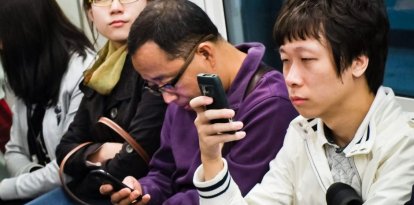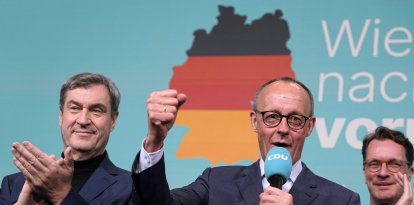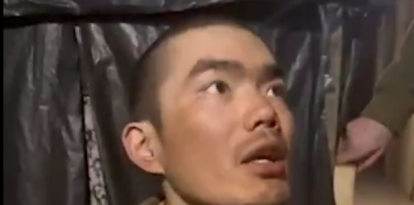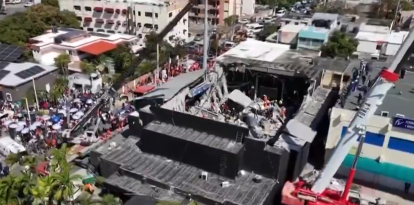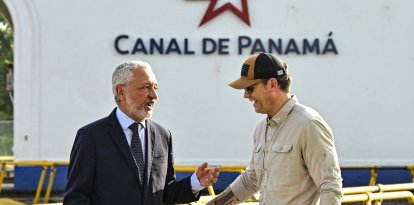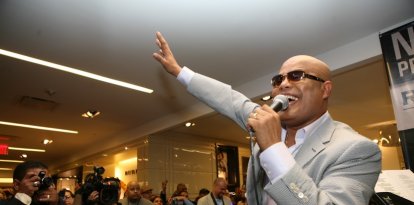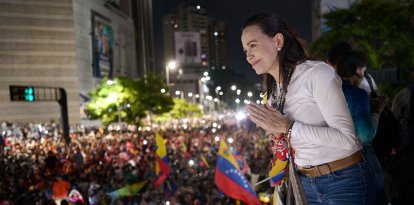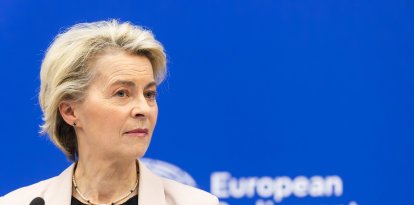Hispanic America
Bolivia: military coup amid power struggle between Arce and Evo for control of the MAS party
Both the military coup leader Zúñiga and several politicians of the Evista faction assure that the coup in La Paz was staged by the Government to gain popularity and support.

Demonstrators take to the streets in support of Luis Arce's government after Zuniga's coup d'état in La Paz, Bolivia.
After the arrest of General Zúñiga, the main face of the coup attempt, Bolivian authorities arrested one more military commander. It is vice admiral Juan Arnez Salvador, now former general commander of the Bolivian Navy.
The arrests of Zuniga and Arnez come after the Bolivian State Prosecutor's Office opened a file against the military officers who led an attempted uprising this Wednesday in the country's executive capital.
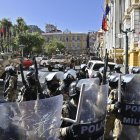
World
Bolivia: Government takes control of the situation, arrests General Zúñiga
Emmanuel Alejandro Rondón
After several leaders of the ruling left in Bolivia denounced irregular troop movements in La Paz, the seat of government, a contingent of military personnel showed up at the Murillo square, where the former seat of the Executive Branch, the Quemado Palace, is located and where Bolivian President Luis Arce was.
The uniformed members of the Military Police tried to enter the Government building accompanied by a tankette. General Zúñiga made some clumsy declarations to the press in which he first assured that this action was not a coup d'état, but rather a show of force with the intention of restructuring the Government.
Zúñiga, deposed commander general
He assured that Morales was plotting an institutional coup d'état against the current government and that he was a "traitor." He threatened to use "all the tools of the Homeland" and of "the armed forces" to prevent everything "he deserved" from his intervention. These declarations of Zúñiga constituted an interference in politics in the eyes of Arce's Executive, who shares a party with Morales.
The Executive of Luis Arce launched alerts from its media against the military gathered in the Murillo square and a spontaneous demonstration was organized. The prompt reaction of the Government and the popular support in the streets put an end to the coup. After several hours of tension, the military ended up retreating and General Zúñiga fled in one of the tanks.
Zuñiga assures that it is a self-coup
Moments later, when Zúñiga assured the press from the street that the one who ordered the staging of a coup d'état was President Arce himself, he was detained in front of the media cameras and evacuated in a vehicle. In this new version he gave, Zúñiga assured that President Arce asked him to take the military to the streets to improve his reputation, since "the situation is very j****a" and "this week is going to be critical."
Zúñiga's version is taken for good by some politicians close to Evo Morales. The former Minister of Government of the indigenous leader, Carlos Romero, assured a national television that the military "fulfilled the script that they have sent him to do, he has already begun to dismantle. There was a lot of disbelief, they wanted to give him more narrative with the live arrest and he says he has only done it."
"The president told me: the situation is 'very critical, it is necessary to prepare something to raise my popularity."
The Bolivian Minister of the Presidency, María Nela Prada, responded that the version of the self-coup is "absolutely false". She added in statements that the investigation initiated by the Prosecutor's Office will clarify what happened. He also leaked the statement that Zúñiga made upon his arrival at police headquarters, in which he explained that the "armed uprising failed because the military units were late in arriving."
Evo against Arce
Zúñiga's clumsy coup attempt takes place in a context of internal struggle in the hegemonic party in Bolivia. In the Movement Towards Socialism (MAS), two factions are fighting for control of the party and to be the majority in the next Bolivian government. On one side the former president and historic leftist leader, Evo Morales, and on the other the current head of government, Luis Arce.
The country will return to the polls in 2025 after several years of governance crisis and a delicate economic situation that has led to massive protests in the streets, the last ones this week in La Paz. A situation aggravated by the struggle between the Evistas and the Arcistas, which has practically paralyzed the Executive of Luis Arce.
This cyclical instability began in 2019, after Evo Morales ran for a third presidential term, despite this being unconstitutional. After turbulent elections, Morales made the decision to leave the country which opened a period of acting government that the MAS party opposed and called illegitimate.
After new elections, Morales' former finance minister, Luis Arce, became president with the promise of bringing social and economic stability to the country. Evo Morales then saw the opportunity to return to Bolivia and to aspire again to leadership, not only in the MAS party, but in the institutions.
Political indigenism
Evo Morales is the Bolivian leader with the greatest popularity and recognition in Bolivia's contemporary history. Much of that success comes from his humble origins, his populist policies and his indigenous leadership. In Bolivia, 40% of the population identifies itself as indigenous and this has led the country to have a series of parallel institutions for the natives. In contrast, the rest of Bolivians are divided between mestizos and a small proportion of whites and Creoles.
In early June, Morales rallied thousands of his supporters in Cochabamba, southeast of La Paz, his rural stronghold. "We are going to win the elections and we are going to save Bolivia," roared a triumphant Morales to a stadium filled with supporters waving wiphalas - the multicolored square indigenous flag. During his two governments, between 2006 and 2019, Evo managed to reduce the poverty rate to 15% and now promises to carry out his famous land reform, which never saw the light of day in the past.
Luis Lucho Arce does not have the same popularity and convening power as Evo. The banker and economist is entrenched in his current position while maintaining that the latest rulings of the Bolivian Justice prevent Morales from running for his third term. Arce presents himself as a more moderate leftist option than Evo. He counts in his government with a series of socialist technocrats with whom he hopes to be able to carry out a reformist policy.
Evo assured in his last rally that he meets the requirements to return to power and threatens to unleash a wave of instability and street protests if he is not declared valid for the elections.
RECOMMENDATION
